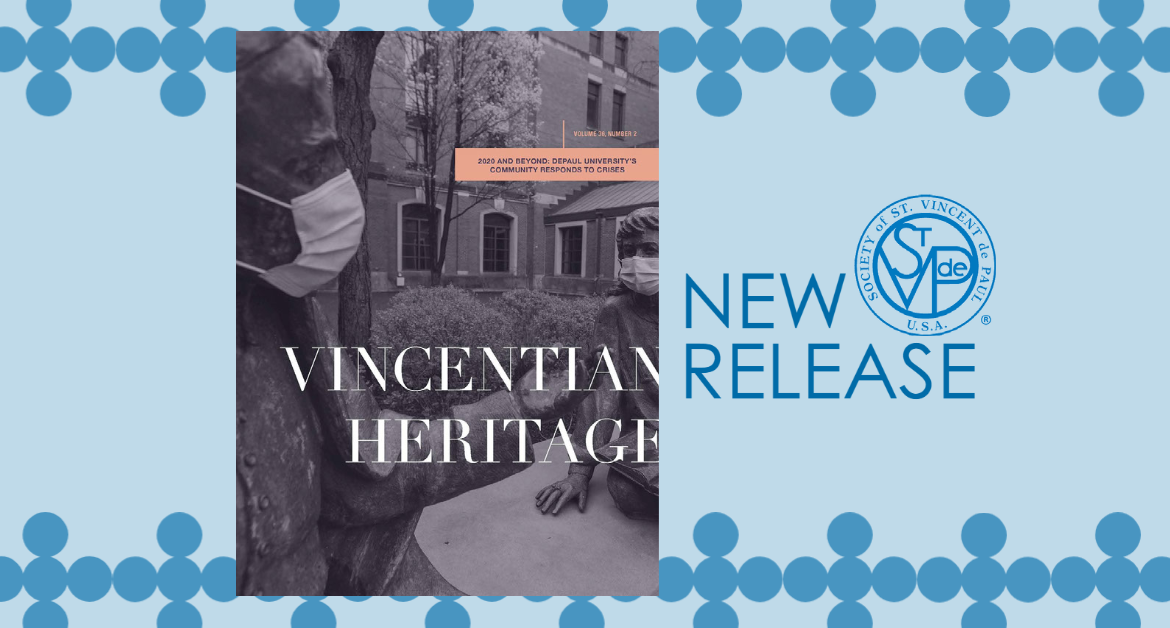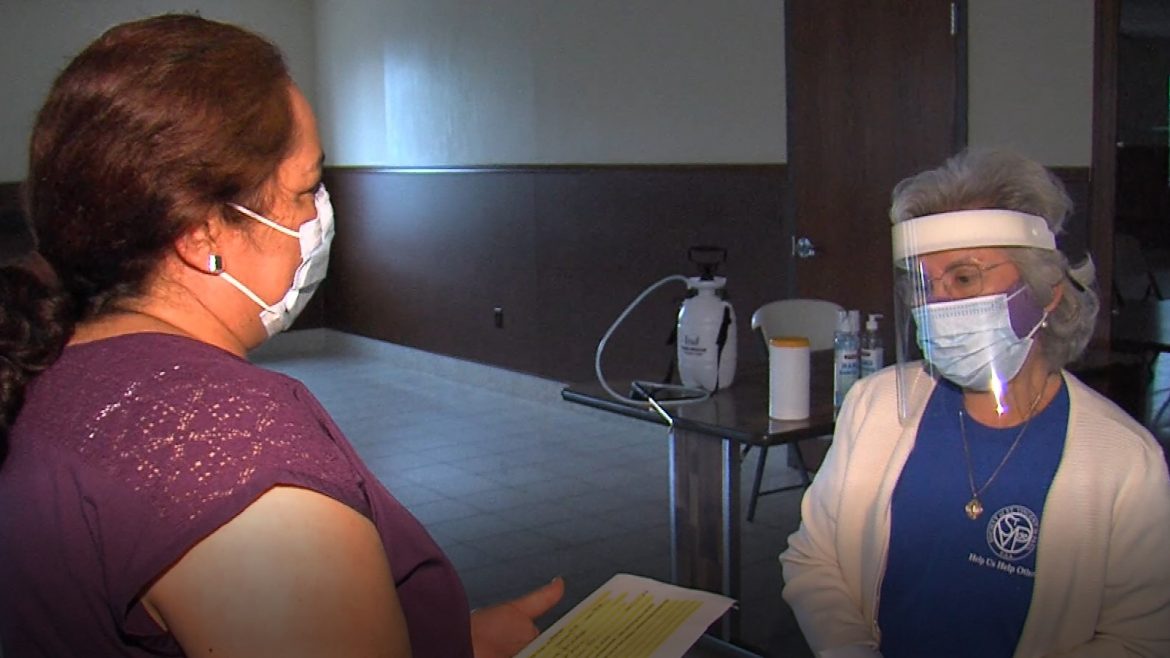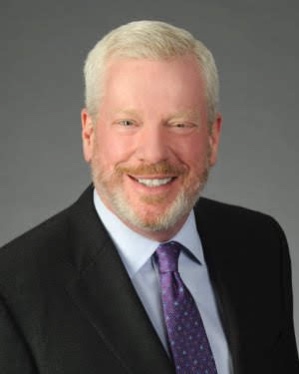National Director of Formation Tim Williams is a featured author in the latest e-book edition of Vincentian Heritage.
Titled “2020 and Beyond: DePaul University’s Community Responds to Crises,” the edition focuses on the watershed issues faced by the United States in 2020, including the COVID-19 pandemic, the murder of George Floyd, and a highly divisive presidential campaign.
The issue features 14 perspectives on the Vincentian response to the crises that enveloped us in 2020, whose effects can still be felt today. Tim’s piece, titled “Learning Not to Despair of Our Own Age”: The Society of Saint Vincent de Paul in This Time of Pandemic”, tells of how the Society used 2020 as a time of reflection and re-imagination, looking back on the Society’s past to inspire its future.
Article Abstract
In the midst of the COVID-19 pandemic, the Society of Saint Vincent de Paul marked the 175th anniversary of its founding in the United States. The Society’s usual works are described. Timothy Williams explains how the organization adapted to continue them during the pandemic, and particularly how it substituted for the home visits that have been the Society’s signature work since its founding. The Vincentian Family and the Society were created in times of political strife, widespread illness, and economic catastrophe, so the words and actions of their founders can inspire and comfort us now. The Society took special action in response to George Floyd’s murder. As Williams writes, “Our response began with self-examination, grounded in our spirituality and in our obligations to each other as Christians. To understand the faults we perceive in society, we must have the humility to examine and accept our own faults.” A webinar series allowed members to share their stories related to social issues, such as economic discrimination, crime, and violence. After the webinars, paired groups of members of different races shared more of their experiences. This strengthened their understanding of each other and equipped them to better serve their neighbors.
Read the Article
Click here to read Tim’s article, or click here to find the entire issue of Vincentian Heritage.



